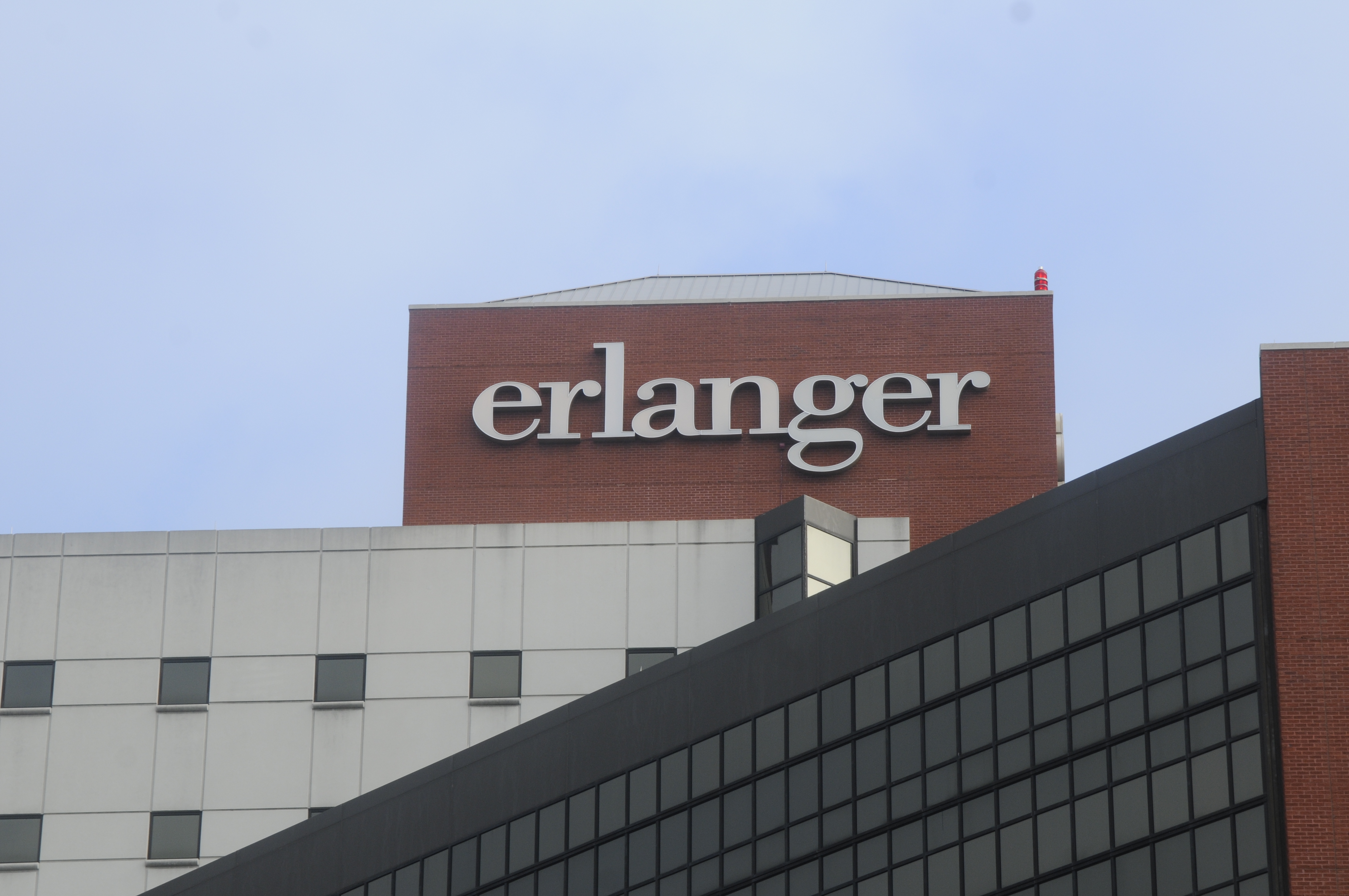Erlanger Health System's budget shortfall climbs to $10.3 million
Sunday, January 22, 2012
A $3.9 million loss in December brings Erlanger Health System's budget shortfall to $10.3 million for the first six months of the fiscal year, one of the biggest deficits in recent years at the public hospital.
Last month's financial report notes the hospital has 79 days of cash on hand, compared to 103 days last December. Under its bond requirements, it must maintain 65 days of cash on hand.
By June if the current trend of losses continues, the hospital will not have enough money to comply with the rules governing its bond debt.
The Budget and Finance Committee is expected to review December and year-to-date financial statements Monday evening.
The fiscal losses come at a time of upheaval for the hospital. CEO Jim Brexler exited at the end of December, leaving with a controversial $728,000 severance package approved by the board in a 5-4 vote. Last week, interim CEO Charlesetta Woodard-Thompson announced an executive restructuring that eliminated six vice-president positions.
State legislators also are looking at revamping the hospital authority act that controls the structure of Erlanger's board after Chattanooga decided not to contribute $1.5 million this year to help cover uncompensated care the hospital provides to city residents.
The hospital is of vital importance to the region with the area's only level one trauma center, note lawmakers, board members and Erlanger officials.
So far the hospital has not laid off any of its 4,700-member workforce, but it has required certain staff members to take time off to help cut operating expenses.
DECEMBER LOSSES
In the last 10 years, Erlanger has lost money only two years and, in one of those years, it paid $40 million in state and federal fines.
But Erlanger has struggled this year after some doctors moved their surgeries to other hospitals. Surgical inpatient and outpatient procedures continue to slide, and outpatient revenue is under budget by $5.3 million, budget documents show.
Emergency room visits and helicopter patients are also under budget and lower than last year, records show. Its debt service coverage ratio also has dropped to nearly the level required by bond covenants.
"Using a 12-month running average, the debt service coverage ratio would not be in compliance at June 30, 2012, if we continue the current trend," the December report notes.
Bill McGriff, the Hamilton County auditor who is on Erlanger's fiscal review committee, said being out of bond compliance, while not ideal, is not an immediate concern.
Investors could step in and require drastic changes, he said, but that rarely happens. Instead, investors usually ask for a plan of action to ensure the hospital is addressing the problem.
"It's a cause for concern, but nobody wants to see institutions fail. It's not in anyone's best interest," McGriff said. "Health care institutions have their ups and downs, and Erlanger is to be praised that they are still able to compete with private and private not-for-profit hospitals."
CHARITY CARE AND PUBLIC FUNDING
As officials discuss how to turn the tide on Erlanger's losses, they note the public hospital receives little local funding to cover its costs in providing uncompensated care.
The 1976 act that created Erlanger ordered Hamilton County to pay the hospital $3 million annually. When a sales-tax agreement between the city and county expired this year - an agreement that spelled out how the two broke down their financial responsibilities for jointly funded agencies - the county paid Erlanger $1.5 million, but the city did not chip in the other half.
So far this year, Erlanger has spent $44.7 million to cover uncompensated care and averages about $80 million a year in such costs.
Other hospitals receive much larger infusions of local cash to cover uncompensated care, Erlanger officials frequently note, but local government officials do not seem inclined to up the numbers.
Grady Health System - which plays the same role in Atlanta that Erlanger has in Chattanooga - provides about $200 million in uncompensated care every year, according to spokeswoman Denise Simpson. Last year, Fulton and DeKalb counties gave the hospital $64.4 million, but that is down from about $100 million a year 10 years ago, she said.
"It's been a steady decline," Simpson said, and Grady rarely makes a profit.
Figures for the Regional Medical Center in Memphis, another hospital sometimes compared to Erlanger, were not available.
The topic of uncompensated care came up at a recent meeting in Chattanooga when state legislators met with an Erlanger trustee to discuss possible changes to the act that governs the hospital.
State Sen. Bo Watson, R-Hixson, chairman of the Hamilton County legislative delegation, said the main focus of changes to the hospital act has been on how the board is structured. While changes will include discussions with local government, Watson said, it is unlikely the state will require local governments to pay more to the hospital.
A state infusion of money is also unlikely, Watson said, even though the state provided some additional funding to Memphis' Regional Medical Center several years ago.
"These kind of hospitals are difficult to manage and health care is a tough market," Watson said. "We are looking at the way the board is structured and hoping to make changes there."

